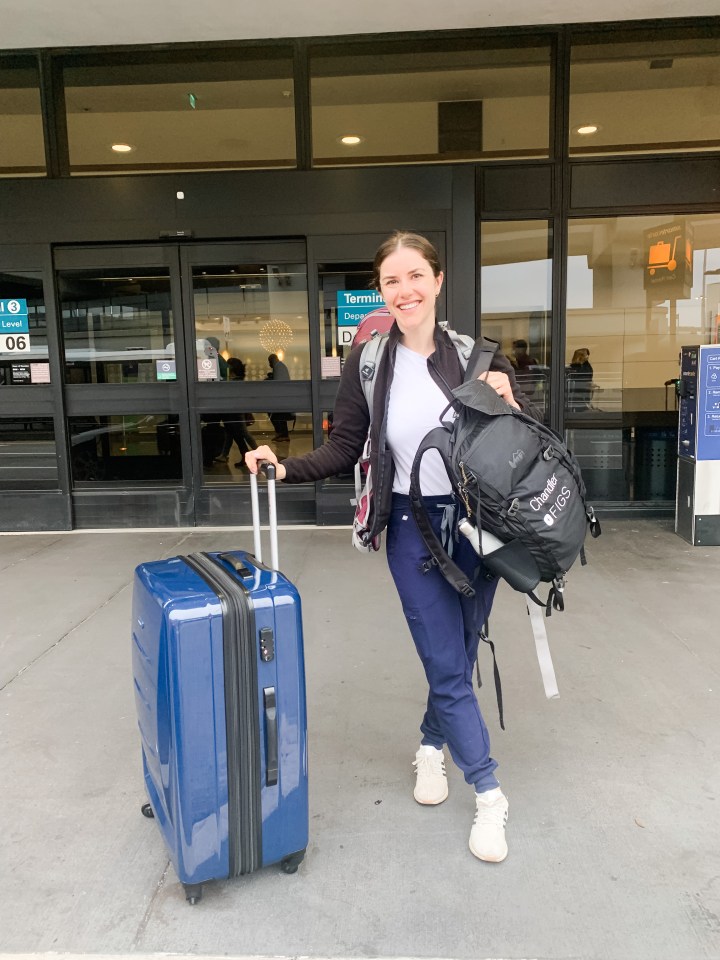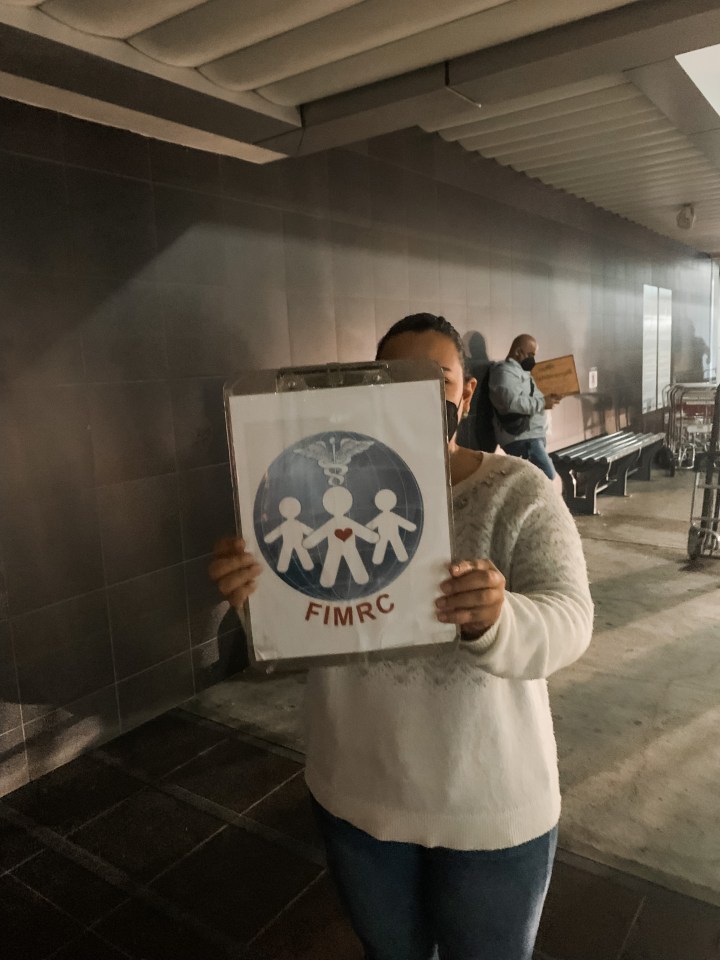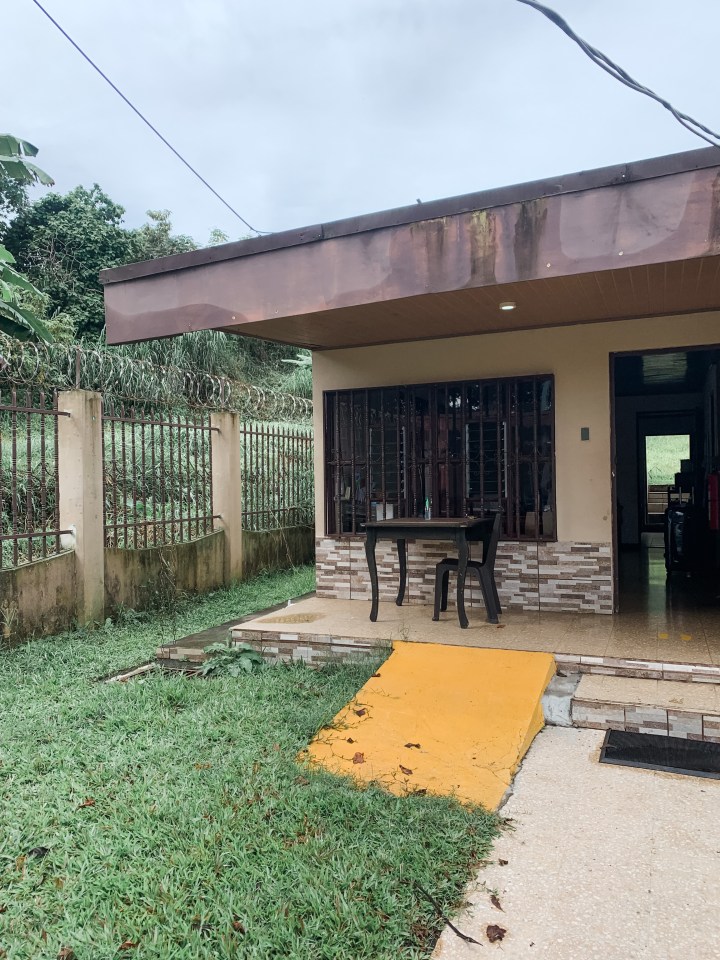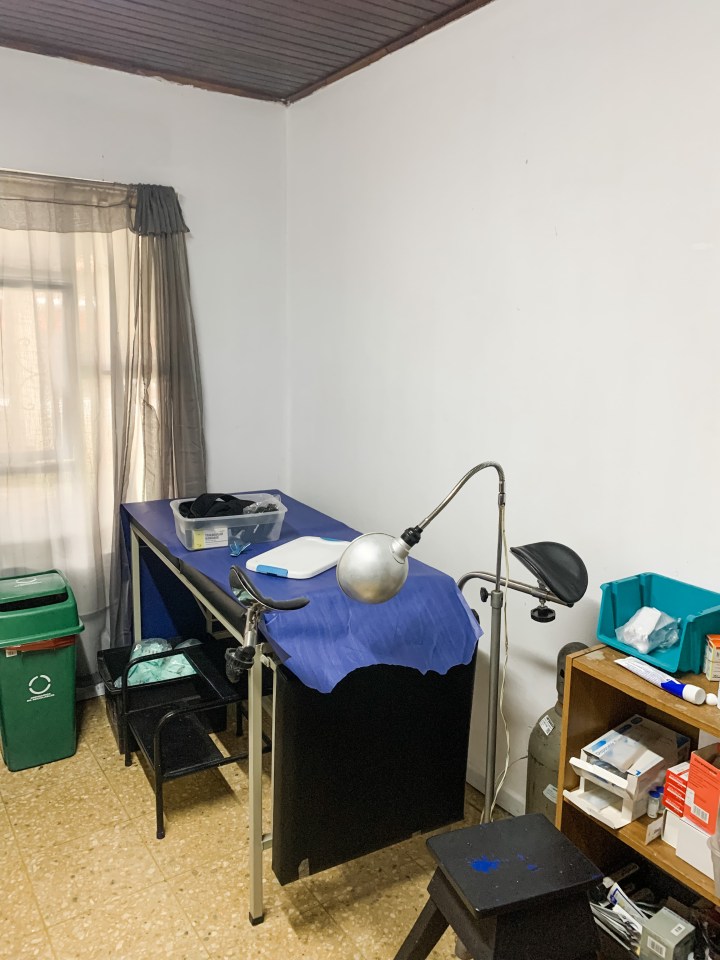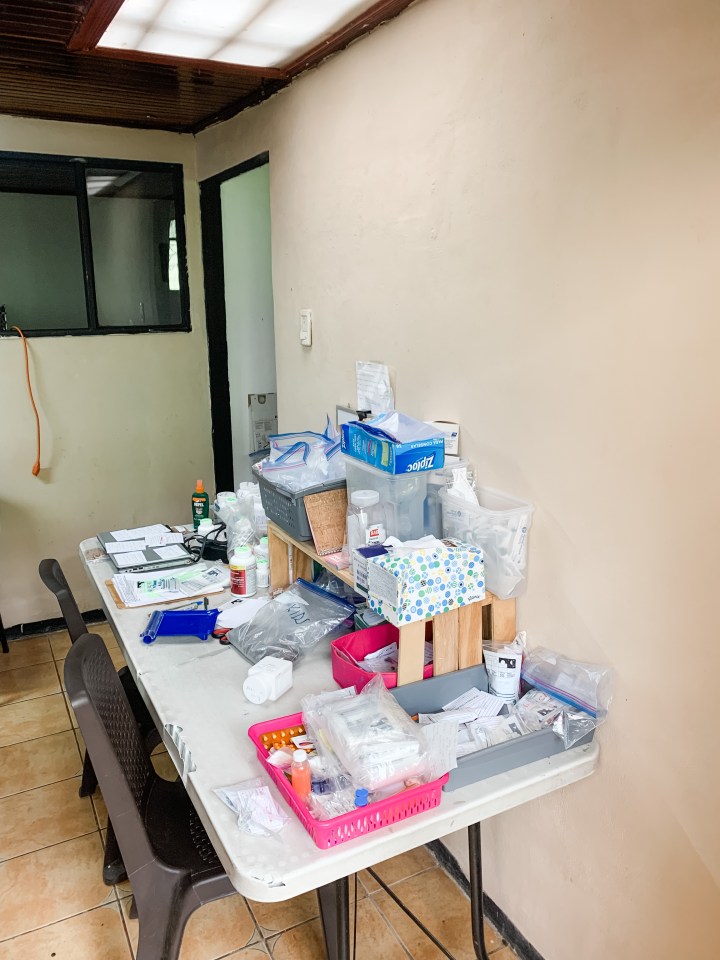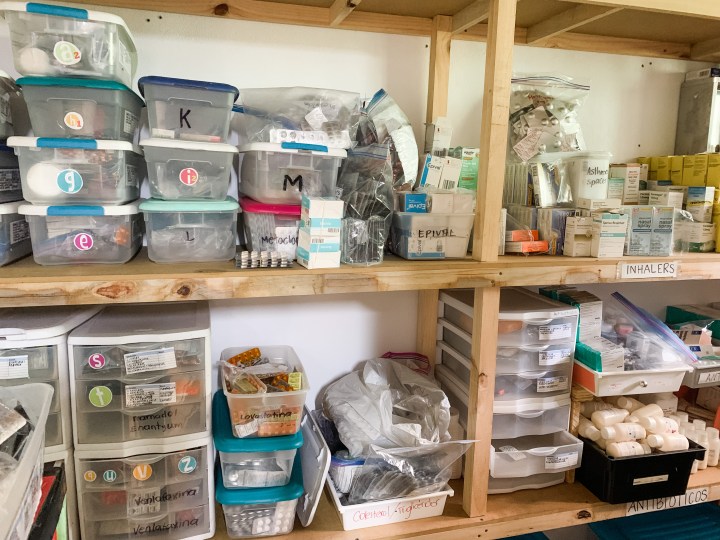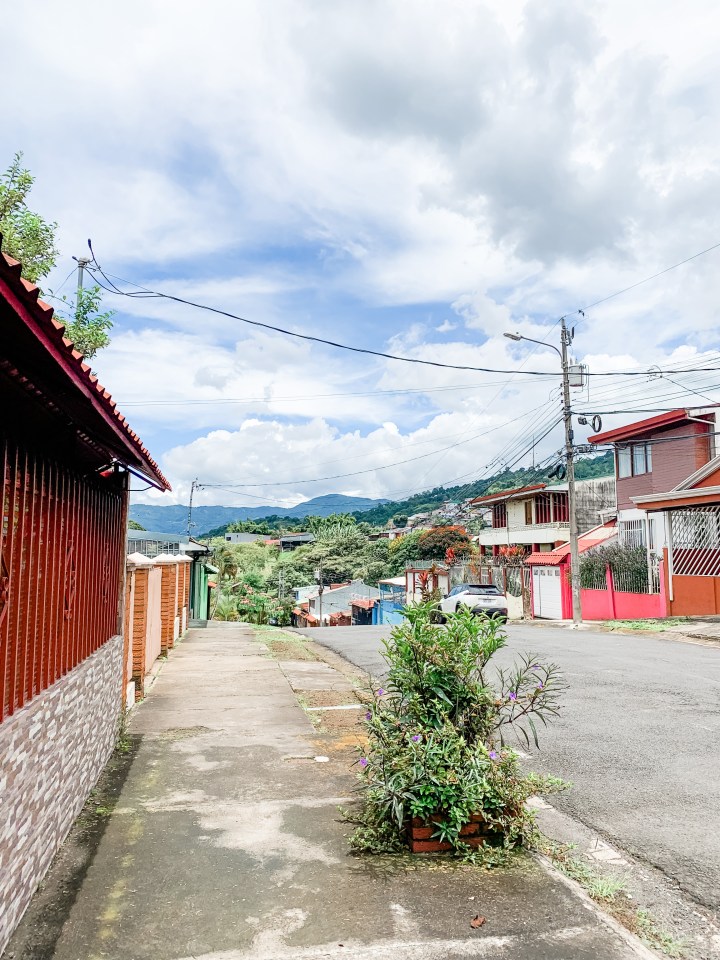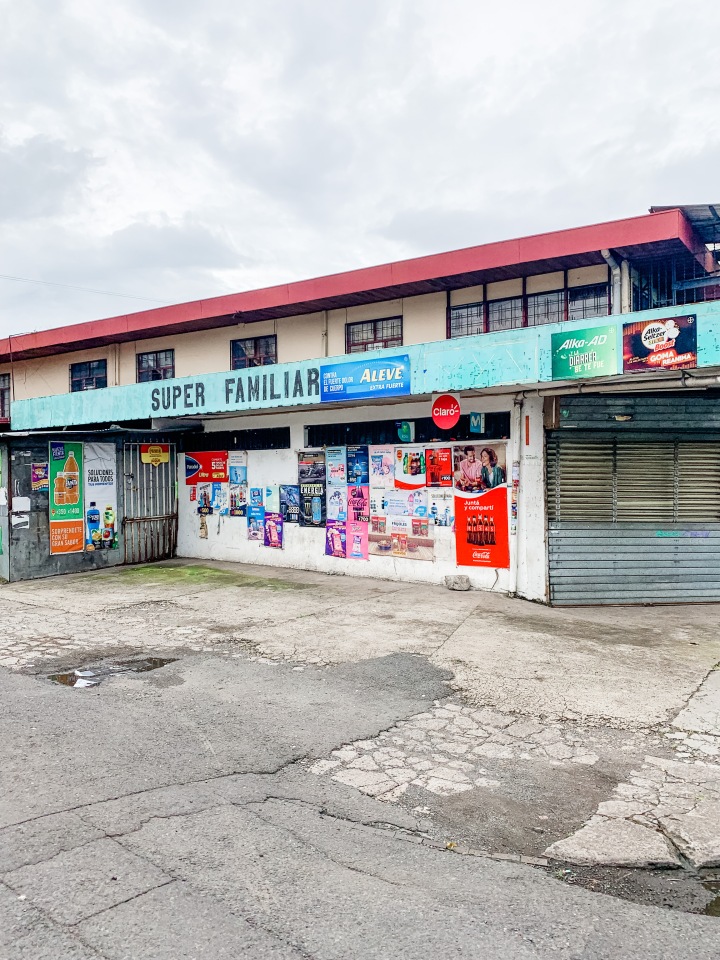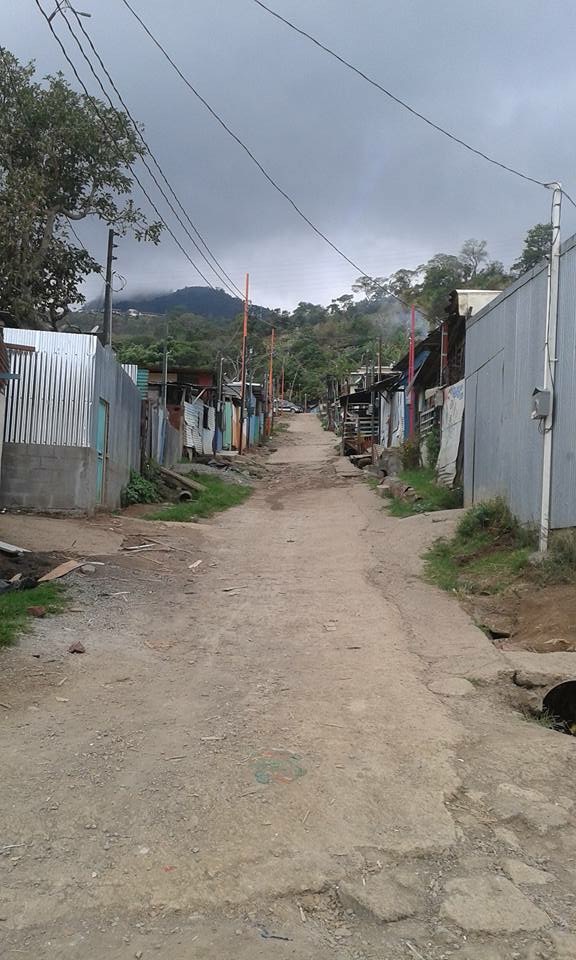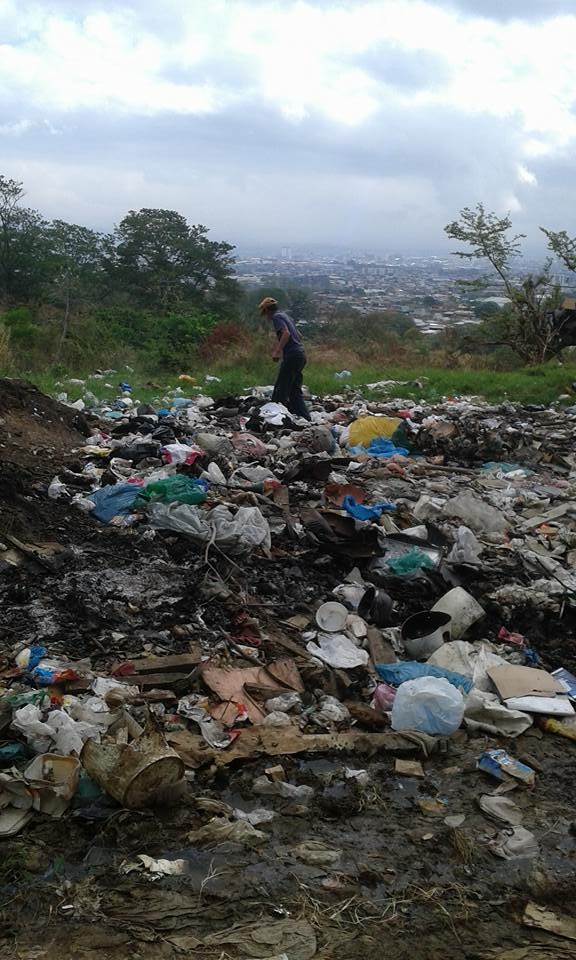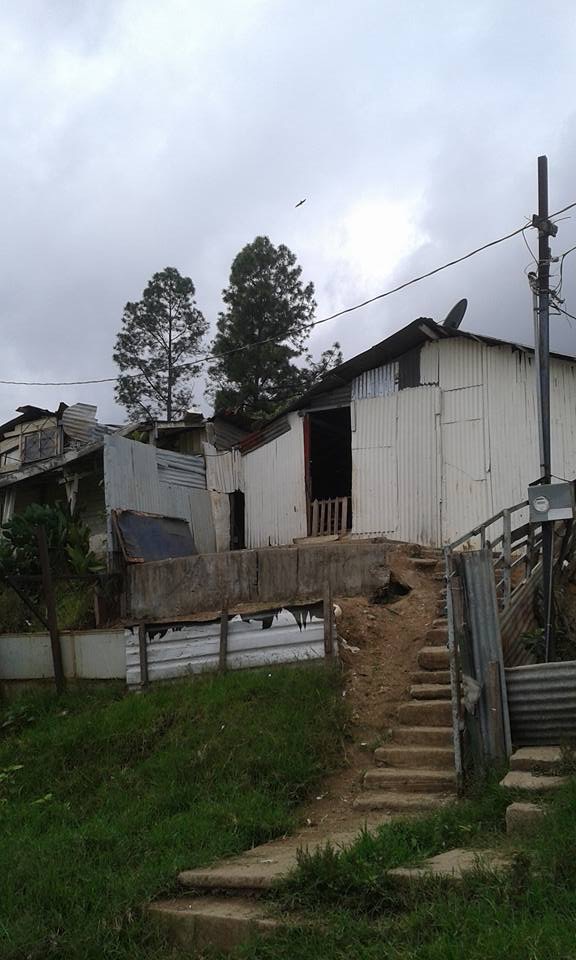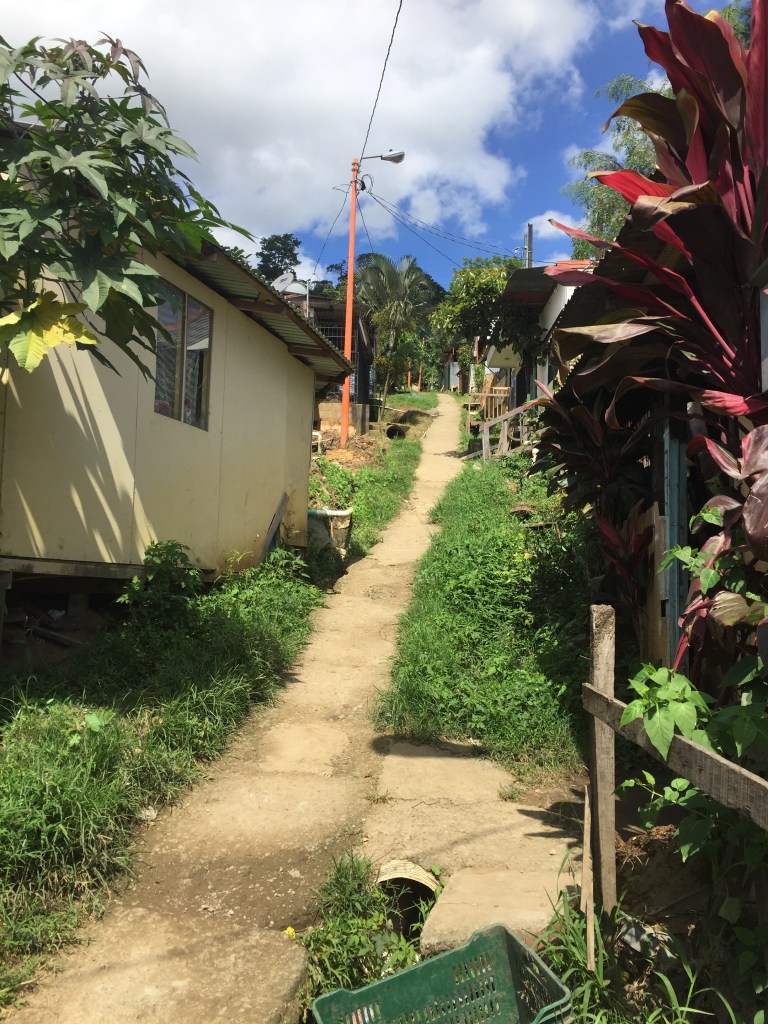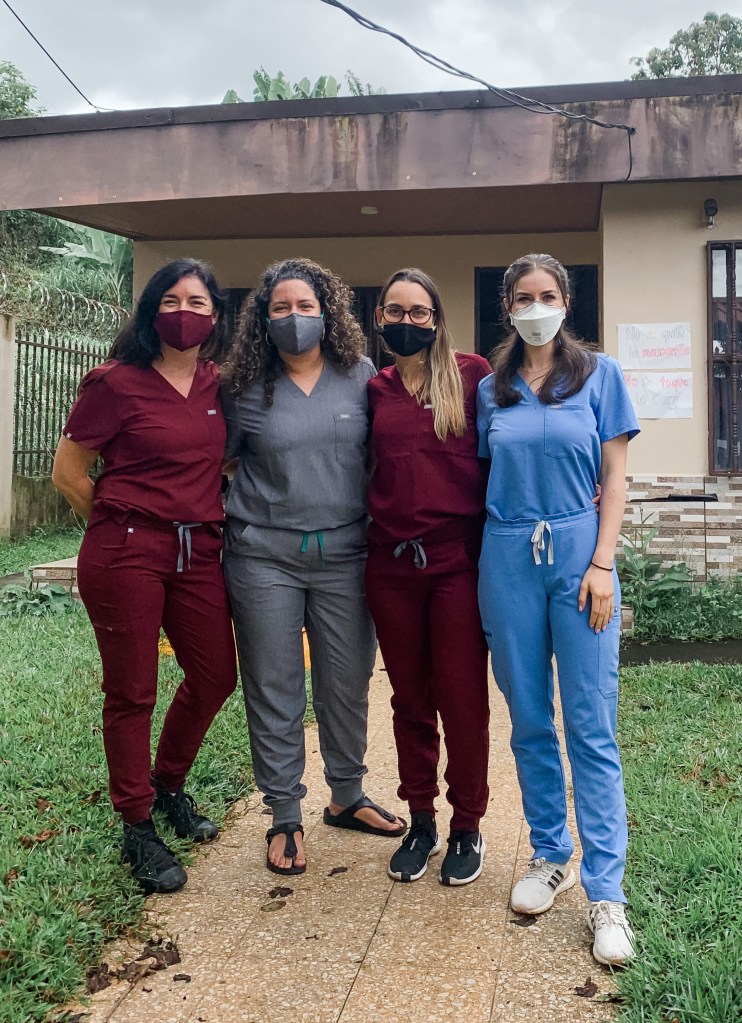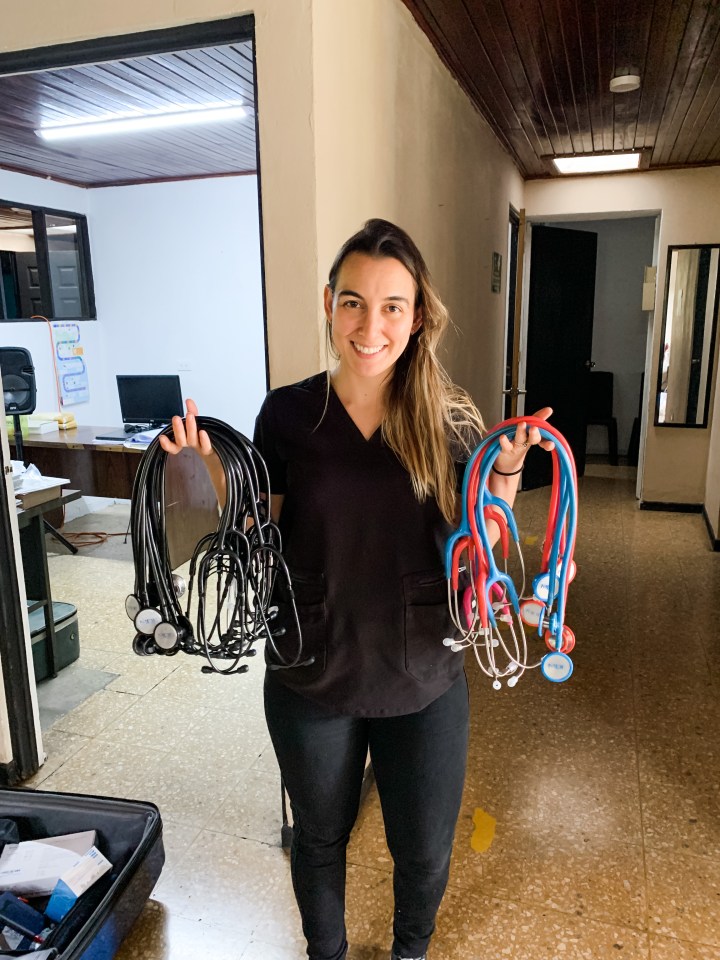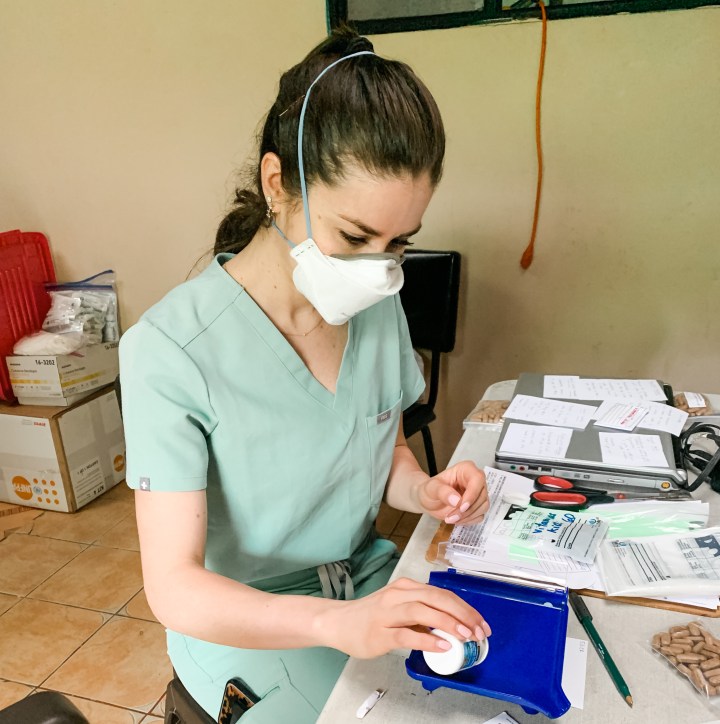
To be honest, I was extremely nervous about going on a medical mission during a resolving pandemic. I knew deep down if I didn’t seize this opportunity, I would regret it. Man oh man was that the truth!
SAFETY
Before I departed, I completed a virtual 1:1 orientation where we discussed the burning questions surrounding COVID-19. They required I purchase travel insurance that covered COVID hospitalizations and that I get tested prior to departure. Once I landed in Costa Rica I was immediately accepted into The Foundation for International Medical Relief of Children’s (FIMRC) safe arms. Waiting for me was the FIMRC driver that took me to my family homestay. All the drivers, the family, and the providers at the clinic received the COVID vaccine.
HOMESTAY
One of the special FIMRC touches was arranging a homestay with a local Costa Rican family about 40 minutes from the clinic. The mother, Iva, treated me like one of her own. Her home was full of 2 children, 3 dogs, incredible Costa Rican food, and love. Iva prepared all of my food for me and had the patience to let me practice my Spanish with her. She made me feel safe and at home.
THE CLINIC
Costa Rica is FIMRC’s first clinic. It is situated in a town called Alajuelita. 80% of the patients treated at this clinic are Nicaraguan refugees and impoverished Costa Rican citizens. The majority of the patients seen are uninsured women and children. The clinic offers medical services in addition to mental health services.
COVID-19
FIMRC and the Costa Rica clinic had to quickly adapt to the COVID-19 pandemic. The clinic began performing telehealth visits to screen all the patients before scheduling their appointments, with the highest acuity patients given an in-person appointment. Contrary to normal operations, the clinic began only seeing patients in the mornings and utilizing the afternoons to focus on mass patient education. One day a week became dedicated to filling prescriptions and preparing them for patients to pick up at scheduled times.
I was beyond inspired to see how the clinic utilized WhatsApp to communicate with their patients. All of the clinic’s patients have access to SIM cards and WhatsApp because the Costa Rican government provides them. The clinic began transforming the CDC COVID-19 guidelines into easily digestible images and infograms for their patients to read. But what about the patients that couldn’t read? This became my focus.
PROVIDERS
The clinic in Costa Rica has Dr. Karen as their physician, Dr. Patricia as their psychologist, and Dr. Tatiana as their education manager and psychologist. These three women are the dream team and have managed to keep this clinic operating during a pandemic. They are incredible.
A DAY AT THE CLINIC
I spent a week at the Costa Rica FIMRC clinic and I was able to get the flow of the clinic down. The first thing we would do is check our schedule for the day and ensure all the patient arrival times are spread out well enough. We then would go through and conduct our telehealth visits. Patients with high acuity would get seen as soon as possible. I began triaging the patients upon their arrival, taking their temperatures, ushering them to wash their hands, and seating them in the waiting area outside. We would then see the patients and I would assist Dr. Karen as needed. If the patients were prescribed medications I would head to the pharmacy and fill their prescriptions for them, writing their instructions in Spanish. If we had mental health patients I would sit in and listen to their sessions. This was my first medical mission that incorporated mental health and I wish more medical mission companies addressed mental health for their patients, especially with the stresses of COVID.
BARRIERS
Before COVID the patients already had barriers to receiving healthcare. Some of the patients can’t afford to take the bus to the clinic. Others walk miles to get to the clinic and depending upon their diagnosis (think a foot ulcer) might not be able to. Some patients are living and surviving day-to-day. If an opportunity for work presents itself, the money and work takes priority over the healthcare visit. Because of the aforementioned FIMRC used to visit their patient’s neighborhoods as a mobile clinic. With COVID, this incredible program was cut.
PUBLIC HEALTH
I am used to medical missions being 100% nursing focused. This was my first predominantly public health mission. My focus was to find an easy way to educate those that can’t read the WhatsApp infograms. My project was to transform the infograms into fun and lighthearted videos translated in English and Spanish. Not only could they be sent through WhatsApp but also shared on social media for anyone that speaks the two languages!
FIGSxCOSTARICA
Through FIGS’ Threads for Threads program I was able to donate scrubs to this incredible clinic. The providers that worked so hard to keep the clinic’s doors open during the pandemic beamed when presented their scrubs.
MDF CRAFTING WELLNESS
MDF donated stethoscopes and blood pressure cuffs to the clinic as well. Doctora Karen smiled ear-to-ear when she received all the stethoscopes. She can’t wait to let future volunteers use them! All the providers were beyond grateful for MDF’s kindness.
